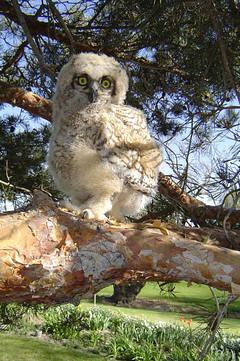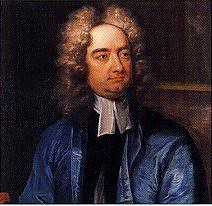.
The great novelist of the Arabic language and of daily life in his native Egypt, Naguib Mahfouz, has died at the ripe old age of 94. He departed on August 31, this year. Writing in the online journal, openDemocracy, Trevor Le Gassick in "Naguib Mahfouz: a farewell tribute" (Sep1,2k6) recounts some of the fascinating factoids of the man whose impact is worldwide. Le Gassick is Professor of Arabic Literature at the IUniversity of Michigan, and one of Mahfouz's traslators into English. He gives us a thumbnail portrait:
Mahfouz ... will be remembered as a man of great intellectual ambition, courage, and dedication; he openly supported the concept of a shared heritage with the peoples of the Mediterranean basin due to which Jews and Arabs could, in his view, live in conciliation and mutual respect once the Palestinians were granted a just settlement.
A family man with a devoted wife and two talented, well-educated daughters, Naguib Mahfouz embodied rational and liberal values which he maintained consistently, even into our current age of polarisation and intercommunal violence. Gregarious and open-minded, a man who inspired affection as well as admiration, he will be sorely missed from the Egyptian and world stages.
One of his works came under the purview of censors, yet Mahfouz had a day job in the civil service of Egypt, which at one time made him chief censor of film in the country. He had an enormous sense of humour which sustainted thru all the pereginations of his existence.
Another of his translators,
Roger Allen, "Naguib Mahfouz: from Cairo to the world" (Aug31,2k6). Also a Mahfouz translator, Allen met the author personally first in 1967, and is Professor of Arabic Literature at the University of Pennsylvania. In kernel: "Naguib Mahfouz (1911-2006) founded the modern Arabic novel and forced the world to take notice."
More broadly, Allen surveys the impact of Mahfouz upon the entirety of Arabic literary writing in the modern era. A literary writing quite often with political and religious consequences, however indirect.
Mahfouz was the one Arab writer who succeeded in bringing the genre of the novel to its full maturity; from that perspective, he is the founder of the contemporary tradition of the Arabic novel in all its wonderful variety. Today's generation of Arab novelists stands on his shoulders. ...
The novel(s) by which he has become most famous in the west are the three works that make up Al-thulathiyya (The Cairo Trilogy). These were written before the Egyptian revolution in 1952 that brought Gamal Abdel Nasser to power, but were only published in 1956-57. The trilogy represents a breakthrough in modern Arabic fiction, in two ways: it shows an entirely new level of maturity in the writing of novels in Arabic, and it records in vivid detail the struggles of the middle class of Cairo in the pre-revolutionary period.
The Arab world of the 1950s, much of it savouring a post-independence era, could look back and see what it was it had lived through and what it had sought to escape. The Cairo Trilogy made Mahfouz into an Arab-world figure of considerable importance.
That said, it is my view that Mahfouz's best works are those he wrote during the 1960s, and especially Al-Liss wa'l kilab (The Thief and the Dogs, 1961), with Tharthara fawq al-nil (Adrift on the Nile, 1966) close behind.
In an exceptional wealth of detail, Allen moves beyond the best known works, to the inner sanctum of works that suffered the glare of official religion and state censorship.
Between the publication dates of The Cairo Trilogy and these novels there lies Mahfouz's most controversial excursion into fiction, Awlad haratina (Children of Gebelawi, 1959 – there is also another translation of the incomplete Beirut edition, entitled Children of the Alley). In this work, Mahfouz explores the human community's proclivity to violence through an examination of the role of five "leaders" attempting to control these baser instincts; an overseer, Gebelawi, living outside the walls of the community, watches on in dismay.
MidEast > Egypt [Arabic lit]:Those five "leaders" were soon recognised by readers as being portraits of Adam, Moses, Jesus, Mohammed, and – most controversially, "Science", the last of whom goes to the overseer's house and kills him.
Upon reading this account I couldn't help but think of a recent bitingly satirical cartoon I analyzed in my column "
Semiote Analytics in
refWrite Backpage Jun20,2k6,
Cox & Forkum and the semiotics of the atheist critique of religions. I wonder if the Mahfouz stories influenced the cartoonists. ... Returning to Roger Allen:
The book was serialised in al-Ahram (Cairo's main newspaper) against protests from the al-Azhar mosque-university in Cairo, then banned from publication in book form in Egypt, before being published in Lebanon in 1967 (with some excisions from the text). It was this work that aroused the fury of the religious establishment in Egypt and led (after Mahfouz's Nobel prize in 1988) to a fatwa from Omar Abdel Rahman, the Egyptian popular preacher, condemning Mahfouz to death (a la Salman Rushdie and [the fatwa issued against him by Iran's] Ayatollah Khomeini). That threat was almost made a reality in October 1994 when Mahfouz was stabbed outside his apartment in Agouza.
The
fatwa's author, Omar Abdel Rahman,
Daniel Pipes informs us, is familiar to many Americans for another reason:
Although a Muslim himself, Mahfouz deeply mistrusts fundamentalist Muslims. Already in 1959, he wrote an allegorical tale, Sons of Our Quarter, that much perturbed them. And it still does: in 1989, shortly after the Ayatollah Khomeini's edict against Salman Rushdie for writing The Satanic Verses, one Egyptian fundamentalist declared, "If only we had behaved in the proper Islamic manner with Naguib Mahfouz, we would not have been assailed by the appearance of Salman Rushdie. Had we killed Naguib Mahfouz, Salman Rushdie would not have appeared." Not to be outdone, Omar Abdel Rahman, the Egyptian sheikh now resident in Leavenworth, Kansas (serving many life sentences for his role inspiring terrorism in New York City), condemned Mahfouz to death. In October 1994 a young fundamentalist Muslim stabbed the then 83-year-old Mahfouz in the neck, an act of vengeance for his anti-fundamentalist attitudes.
While Pipes is not an enthusiast for Mahfouz's writing, his remark is embedded in a book review of a volume about the Nobel laureate (albeit with a different spelling of the Egyptian's name),
Najib Mahfuz: The Novelist-Philosopher of Cairo by Menahem Milson (New York: St. Martin's Press, 1998. 336 pp. $49.95).
I conclude by quoting Roger Allen. "
Requiescat in pace, may he rest in peace.
Rahima-hu Allah."
-- Anaximaximum
More on MahfouzRoger Allen interviewed on translating MahfouzMahfouz, Nobel Prize for Literature, 1988Leading Arab-language poet, playwrite & satirist, Mohammed al-Maghout, dies at 72 [Syria]

 >br>
>br>








